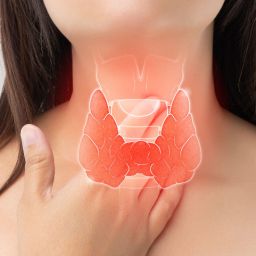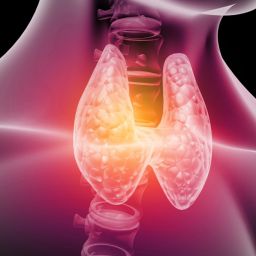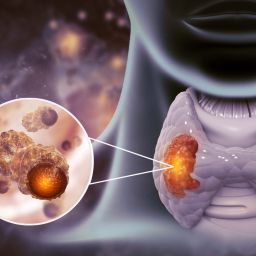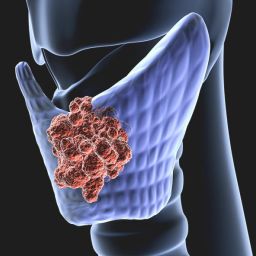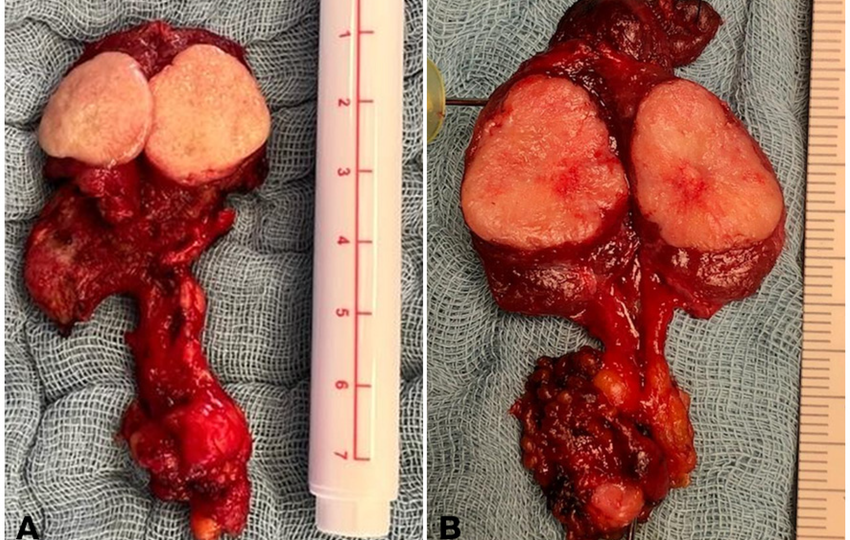
The Role of Nutrition During Thyroid Cancer Treatment
Proper nutrition is vital during any cancer treatment, but it becomes especially crucial when managing thyroid cancer. Patients undergoing treatment for thyroid cancer may experience side effects that can disrupt normal eating habits, such as fatigue, difficulty swallowing, nausea, and changes in taste. Furthermore, the body’s metabolism may be altered during and after treatment, affecting the nutritional needs of the patient. Nutrition helps in several ways:
- Boosting the Immune System: Nutrient-rich foods can help strengthen the immune system, which is critical when the body is under stress from both the disease and its treatments.
- Supporting Recovery: Surgery and other treatments can place significant strain on the body. Adequate nutrition is essential for tissue repair and overall healing post-treatment.
- Managing Treatment Side Effects: Many cancer treatments cause side effects such as nausea, vomiting, and fatigue. Specific foods and dietary modifications can help mitigate these symptoms.
- Maintaining Weight and Muscle Mass: During treatment, patients may experience weight loss or muscle wasting. Proper protein intake and a balanced diet can help prevent this.
By tailoring nutrition to meet the specific needs of thyroid cancer patients, it is possible to enhance the effectiveness of treatment, reduce complications, and promote long-term health.
General Nutritional Guidelines for Thyroid Cancer Patients
While every patient’s treatment journey is different, several general guidelines can help thyroid cancer patients maintain proper nutrition. These include ensuring a balanced diet, staying hydrated, and modifying food intake to manage side effects.
1. Consume a Balanced Diet
A well-rounded, balanced diet should include a variety of foods from all the major food groups: proteins, carbohydrates, fats, vitamins, and minerals. This balanced approach supports overall health, improves energy levels, and aids in recovery.
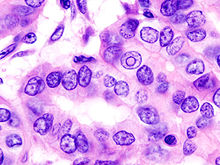
- Proteins: Protein is critical for tissue repair, immune function, and maintaining muscle mass. Lean sources of protein, such as chicken, fish, eggs, tofu, beans, lentils, and nuts, should be included in the diet.
- Carbohydrates: Whole grains such as brown rice, quinoa, oats, and whole wheat bread provide sustained energy and fiber. These foods are essential for digestive health and preventing constipation, which can be a side effect of treatment.
- Fruits and Vegetables: A diet rich in fruits and vegetables provides essential vitamins and minerals, especially antioxidants, which help reduce inflammation and oxidative stress caused by cancer treatments. Choose a variety of colorful options such as leafy greens, berries, oranges, and carrots for optimal nutritional benefit.
- Healthy Fats: Healthy fats from sources like avocados, olive oil, nuts, and seeds provide energy and help maintain brain and heart health.
Aiming to include these food groups in every meal helps ensure the body gets the right balance of macronutrients and micronutrients needed to function optimally during cancer treatment.
2. Stay Hydrated
Cancer treatments like chemotherapy and radiation can lead to dehydration, especially if side effects like nausea, vomiting, or diarrhea are present. Proper hydration is essential for maintaining electrolyte balance, supporting digestion, and helping the body cope with the physical stress of treatment.
Patients should aim to drink plenty of water throughout the day. Herbal teas, broths, and smoothies are also good options for keeping hydrated. Patients who find it difficult to consume large amounts of liquid at once can try sipping small amounts of water throughout the day or incorporating water-rich foods like cucumbers, watermelon, and oranges into their diet.
3. Minimize Processed Foods
During cancer treatment, it’s important to limit the intake of processed foods, as they are often high in unhealthy fats, sugars, and sodium, and they offer little nutritional benefit. Instead, focus on whole, unprocessed foods that provide essential nutrients and support overall well-being.
Additionally, processed foods and certain additives can interfere with the body’s ability to absorb necessary nutrients, potentially exacerbating side effects such as fatigue and digestive issues. Reducing processed foods while increasing the intake of fresh, wholesome ingredients can have a significant positive impact on overall health.
4. Adjust Meals Based on Side Effects
Many thyroid cancer patients experience side effects such as nausea, mouth sores, changes in taste, or difficulty swallowing. Adjusting the texture, flavor, and portion sizes of meals can help make eating easier and more comfortable.

- For nausea: Smaller, more frequent meals may be easier to tolerate. It’s also recommended to avoid greasy, fatty, or overly spicy foods, as they may exacerbate nausea. Bland foods like rice, crackers, and bananas can be easier on the stomach.
- For difficulty swallowing: Foods that are soft, moist, and easy to swallow, such as soups, mashed potatoes, smoothies, and yogurt, can be beneficial. Avoid dry, scratchy foods that might irritate the throat.
- For changes in taste: Many patients experience altered taste sensations during treatment. In these cases, patients may find that strongly flavored foods, such as citrus, mint, or spicy foods, are more palatable. Experimenting with different herbs and spices can help enhance flavor without relying on overly salty or fatty foods.
5. Support Healthy Digestion
Cancer treatments can also affect the digestive system, leading to symptoms such as constipation, diarrhea, or bloating. A diet high in fiber can help maintain regular bowel movements and promote digestive health. Good sources of fiber include whole grains, vegetables, fruits, beans, and legumes.
In addition to fiber, consuming foods with probiotics, such as yogurt and fermented foods, can support gut health. Maintaining healthy gut flora is crucial, as it can affect immunity and overall digestive function during cancer treatment.
Essential Nutrients During Thyroid Cancer Treatment
Several nutrients are particularly important during thyroid cancer treatment. These nutrients help reduce inflammation, promote healing, and support the body’s ability to handle the side effects of treatment.

1. Iodine
Iodine is a key nutrient for thyroid health, but it plays a critical role in the treatment of thyroid cancer. Patients undergoing radioactive iodine therapy are often instructed to follow a low-iodine diet for a period before the procedure. The goal is to reduce the amount of iodine in the body, as it enhances the effectiveness of radioactive iodine treatment, which targets and destroys remaining thyroid tissue, including cancerous cells.
However, for most thyroid cancer patients who are not undergoing radioactive iodine therapy, iodine is not something that should be avoided. It’s important to follow the guidance of a healthcare provider about iodine intake based on the specific treatment plan.
2. Vitamin D
Vitamin D plays a crucial role in immune function and bone health. During and after thyroid cancer treatment, patients may be at higher risk for bone loss, especially if thyroid function is disrupted following surgery or radioactive iodine therapy. Inadequate vitamin D levels can contribute to bone weakness and fractures.
Good sources of vitamin D include fatty fish, fortified dairy products, egg yolks, and sunlight exposure. Vitamin D supplements may be recommended for patients with low blood levels, but these should be taken under medical supervision.
3. Calcium
Calcium is necessary for maintaining strong bones, and thyroid cancer patients, particularly those who undergo thyroidectomy (removal of the thyroid gland), may be at risk for calcium imbalances. The parathyroid glands, which are responsible for regulating calcium levels in the blood, may also be affected during thyroid surgery.
Patients should consume calcium-rich foods such as dairy products, leafy green vegetables, fortified plant-based milks, and tofu. In some cases, calcium supplements may be prescribed to prevent or manage low calcium levels.
4. Antioxidants
Cancer treatments often increase oxidative stress in the body, which can cause cellular damage. Antioxidants help neutralize free radicals and protect cells from this damage. Foods rich in antioxidants include fruits and vegetables, especially those with bright colors like berries, spinach, kale, and tomatoes.
Antioxidants not only reduce inflammation but also support the immune system and promote overall health. Vitamin C, vitamin E, and selenium are among the most well-known antioxidants that can be beneficial during cancer treatment.
5. Omega-3 Fatty Acids
Omega-3 fatty acids are essential fats that help reduce inflammation and support heart health. They are found in foods such as salmon, flaxseeds, chia seeds, walnuts, and algae-based supplements. For thyroid cancer patients, omega-3 fatty acids can help manage inflammation caused by cancer treatments and support overall health.
Post-Treatment Nutrition Considerations
After thyroid cancer treatment, it’s essential to continue focusing on nutrition to promote recovery and long-term health. Proper nutrition can help the body heal, reduce the risk of recurrence, and support overall well-being.
- Thyroid Hormone Replacement Therapy: Many thyroid cancer patients will require thyroid hormone replacement therapy after treatment to maintain normal metabolic function. It’s important to follow a balanced diet to support thyroid function and metabolism, particularly if thyroid hormone levels are adjusted.
- Monitor Vitamin and Mineral Levels: Patients should continue to monitor essential nutrients such as calcium, vitamin D, and iodine post-treatment to avoid deficiencies or imbalances.
- Ongoing Weight Management: Thyroid hormone replacement therapy can impact weight, so it’s important to maintain a healthy weight through a balanced diet and regular physical activity.
Proper nutrition during thyroid cancer treatment is crucial for managing side effects, supporting healing, and promoting long-term recovery. A well-balanced, nutrient-dense diet can enhance the effectiveness of treatment, maintain energy levels, and reduce complications. By working closely with a healthcare team, including a registered dietitian, thyroid cancer patients can create a personalized nutrition plan that helps them navigate the challenges of treatment and improve their overall quality of life. Nutrition is not only about surviving cancer but thriving throughout the treatment process.

